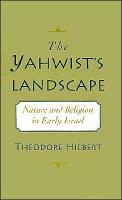Description
The present ecological crisis has created new interest in and criticism of biblical attitudes toward nature. In this book Theodore Hiebert offers a comprehensive examination of the ideology of a single biblical author--the Yahwist (J), writer of the oldest narrative sections of Genesis, Exodus, and Numbers.
Hiebert argues the importance of reading J in its ancient Near Eastern context. His analysis incorporates evidence concerning the ecologies, economies, and religions of the ancient Levant drawn from recent work in archaeology, history, social anthropology, and comparative religion. Hiebert finds that despite the limitations of J's world view (and the world in which it took shape), J's ideology is relevant to contemporary efforts to frame a theology of ecology. Particularly valuable are J's views of reality as unified and non-dualistic, humanity as limited and dependent, nature and humanity as interrelated and holding sacred significance, and agriculture as a context for an ecological theology.
Last updated on
Product Details
- Oxford University Press, Brand
- Jun 20, 1996 Pub Date:
- 9780195092059 ISBN-13:
- 0195092058 ISBN-10:
- 232 Pages
- English Language
- 9.55 in * 6.49 in * 0.88 in Dimensions:
- 1 lb Weight:




